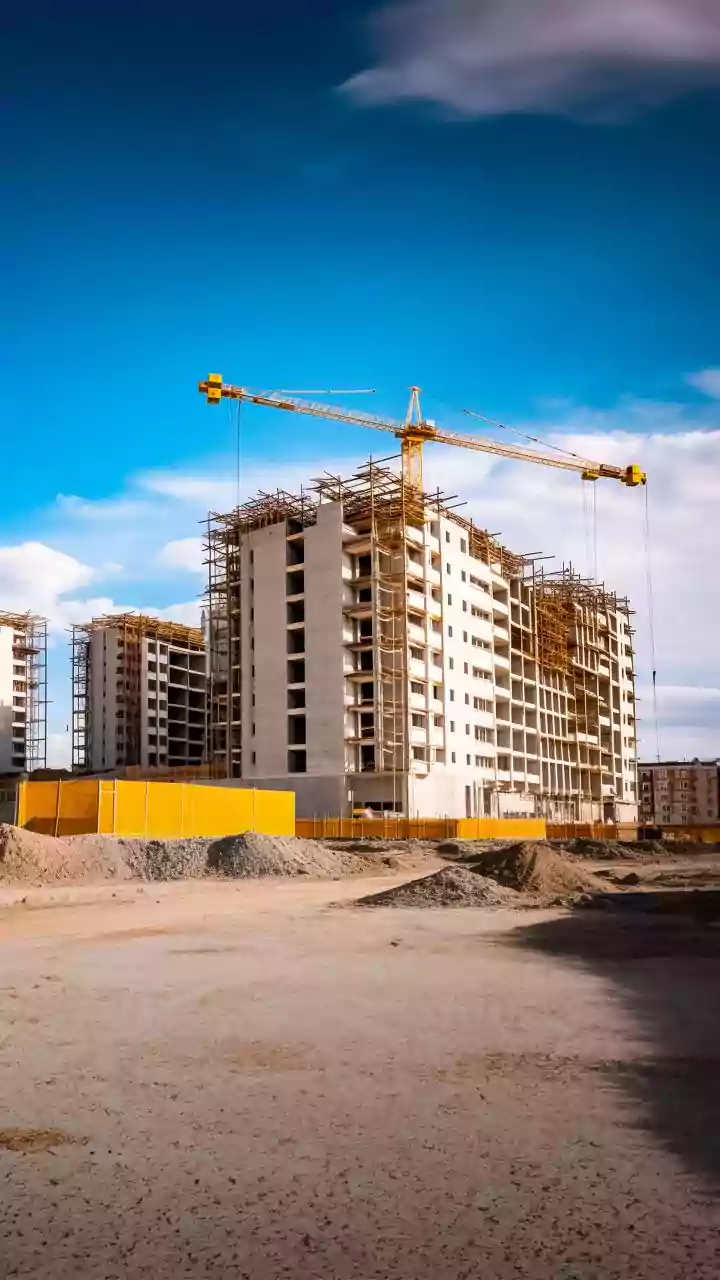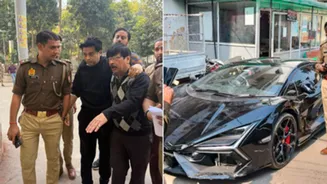Chandigarh, Oct 28 (PTI) The Punjab cabinet on Tuesday gave a nod to the Punjab Unified Building Rules, 2025 under which it will allow the construction of stilt-plus-flour floors in new urban sectors.
A decision to this effect was taken at a meeting of the council of ministers held here under the chairmanship of Chief Minister Bhagwant Mann.
Those who have a plot measuring a minimum of 250 square yards can go for stilt-plus-four floors of construction in new urban areas, an official said.
A spokesperson of the chief minister's office said the approval to the Punjab Unified Building Rules aims to introduce a comprehensive and uniform regulatory framework governing building and development activities across the state.
These rules apply equally to the department of housing and urban development and the department of local government, ensuring consistency and simplification in approvals and enforcement, the spokesperson said.
The key reforms focus on ease of doing business, efficient land utilisation and vertical urban growth.
The rules stipulate raising the permissible height for low-rise buildings from 15 metres to 21 metres and enabling third-party self-certification for plan approval and completion.
They also stipulate limiting scrutiny for high-rise projects to essential safety parameters, thereby reducing delays and allowing additional ground coverage and FAR (floor-area ratio) on payment basis, and relaxing parking, setback and open space norms, the spokesperson said.
The rules also include incorporating EWS, affordable and rental housing provisions within a single unified framework, introducing new building categories, such as mixed-land use and multilevel parking, aligning with modern urban needs.
The cabinet also gave its concurrence to the Punjab Substance Use Disorder Treatment and Counselling and Rehabilitation Centres Rules, 2025, replacing the existing 2011 rules and the First Amendment Rules, 2020, to strengthen the regulation of de-addiction and rehabilitation centres across Punjab.
These rules overcome the shortcomings in the 2011 rules and subsequent amendments in the 2020 rules to regulate 36 government and 177 licensed private de-addiction centres, along with Outpatient Opioid Assisted Treatment (OOAT) clinics.
It has been decided that no private person will be allowed to run more than five drug rehabilitation centres. Presently, some of them are running more than 20 such centres.
These rules will help strengthen licensing, renewal and inspection processes. There will be biometric attendance and mandatory online data reporting, penal provisions for non-compliance, record-keeping standards and secure and transparent dispensing of buprenorphine-naloxone, which is used to treat opioid dependence.
In another decision, the cabinet gave its approval to create a sub-tehsil -- Ludhiana (North) -- for improving administrative efficiency and public convenience in urban areas of Ludhiana district.
It will facilitate quicker mutation and registry processing for high-density urban villages. It will also help decongest the Ludhiana (East and West) tehsils and improve citizen convenience through the optimal use of the existing infrastructure, the spokesperson said.
The cabinet also gave a go ahead to upgrade the existing Barnala municipal council to a municipal corporation, enabling planned urban growth, improved civic infrastructure and efficient governance for the rapidly-expanding district headquarters city.
This will help strengthen the urban governance and infrastructure and enhance service delivery and quality of life for residents, the spokesperson said.
Likewise, the cabinet also gave its approval for the rationalisation of the stamp duty and the registration fee on instruments of hypothecation and equitable mortgage by amending the Indian Stamp Act, 1899 (Punjab) and Registration Fee Rules.
This step is a progressive and business-friendly initiative, aimed at reducing the financial burden on industries.
It also promotes ease of doing business and improves access to affordable credit, besides enhancing Punjab's competitiveness and overall economic environment, the spokesperson said.
The Cabinet also gave its nod to lease around four acres of land for setting up a 100-bed ESI hospital in Dera Bassi.
At present, employees in Dera Bassi and adjoining industrial zones rely on ESI facilities in Ludhiana, Mohali and Chandigarh, which are insufficient to meet the growing healthcare demand.
The cabinet also approved the filling up of 14 Group-A, 16 Group-B and 80 Group-C posts in the Punjab Sports Medical Cadre to strengthen the sports medical support system across districts.
It will also help improve injury management, recovery and performance of sportspersons, along with the promotion of scientific sports development and alignment with national standards.
These professionals will be deployed in districts, such as Patiala, Sangrur, Bathinda, Faridkot, Fazilka, Ludhiana, Amritsar, Gurdaspur, Jalandhar, SAS Nagar, Rupnagar and Hoshiarpur, where the concentration of sportspersons is higher. PTI CHS RC















